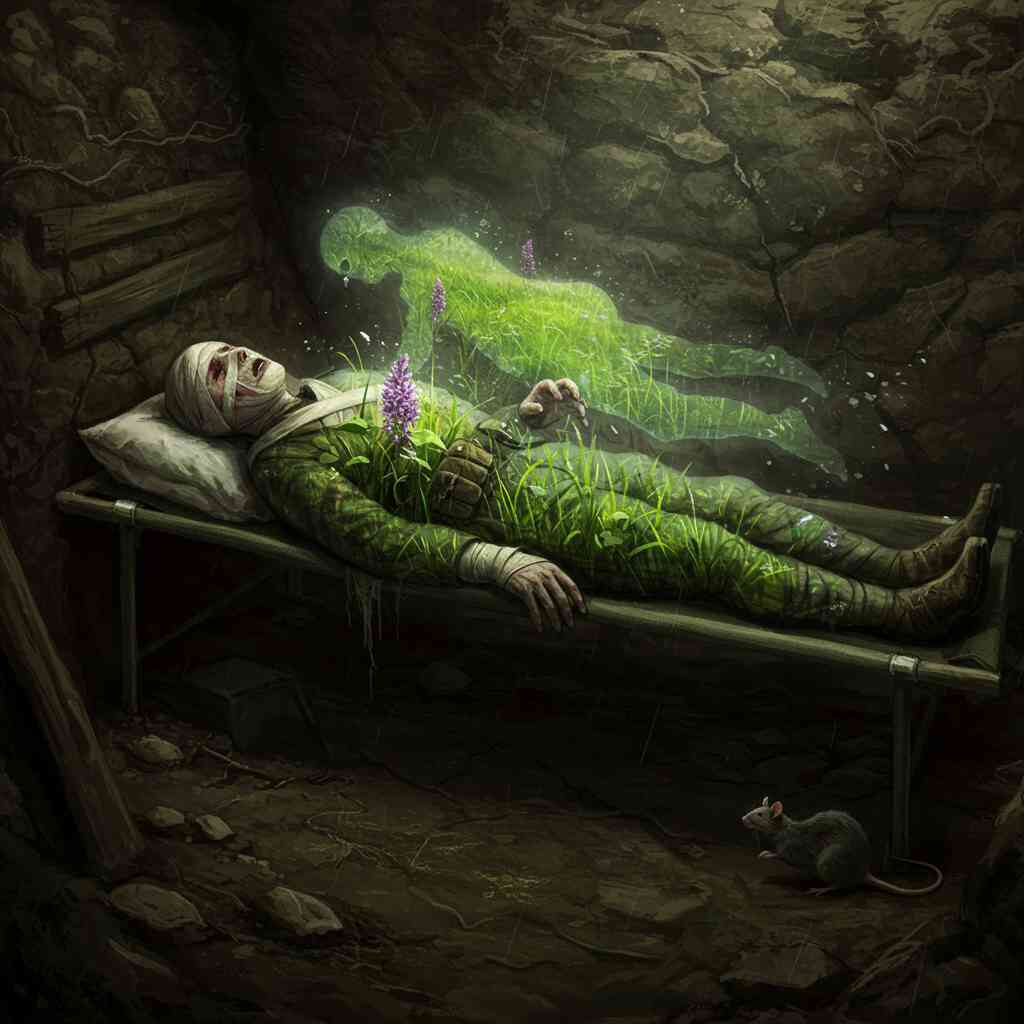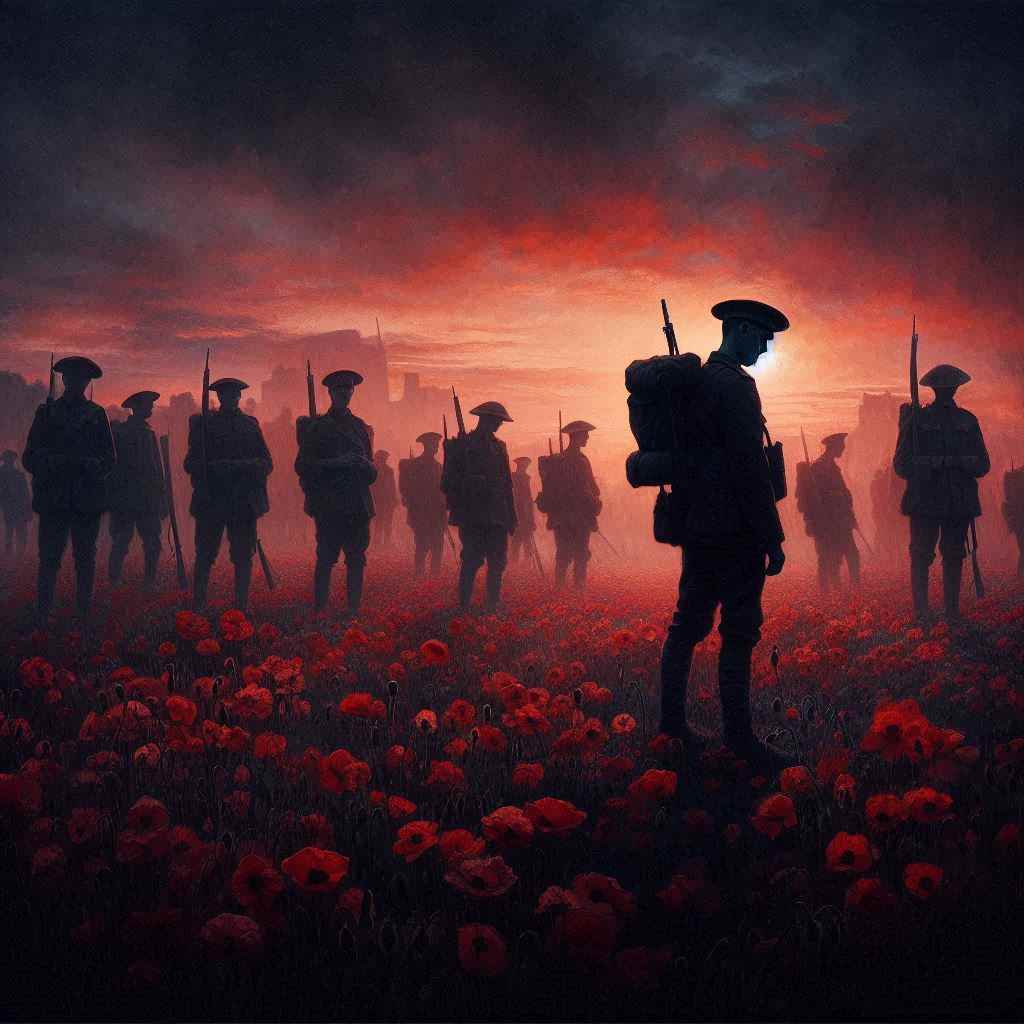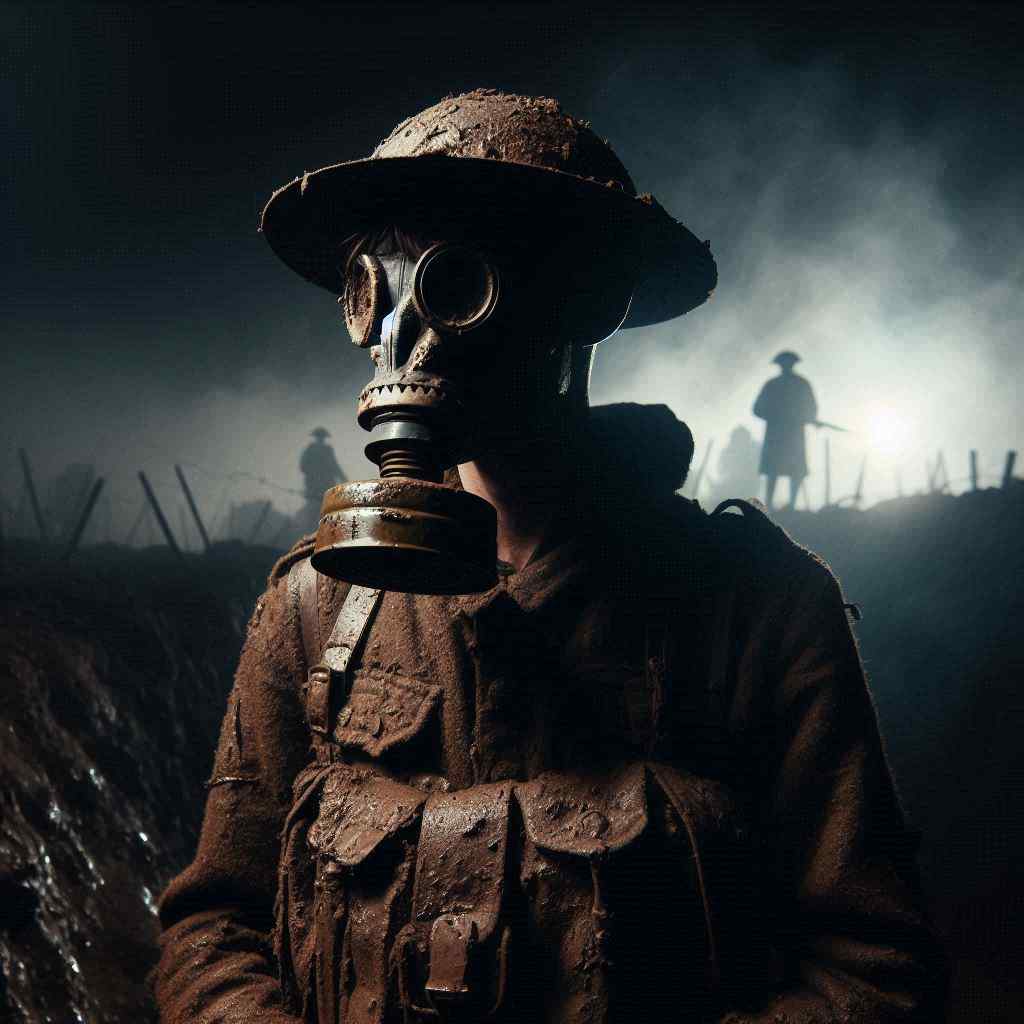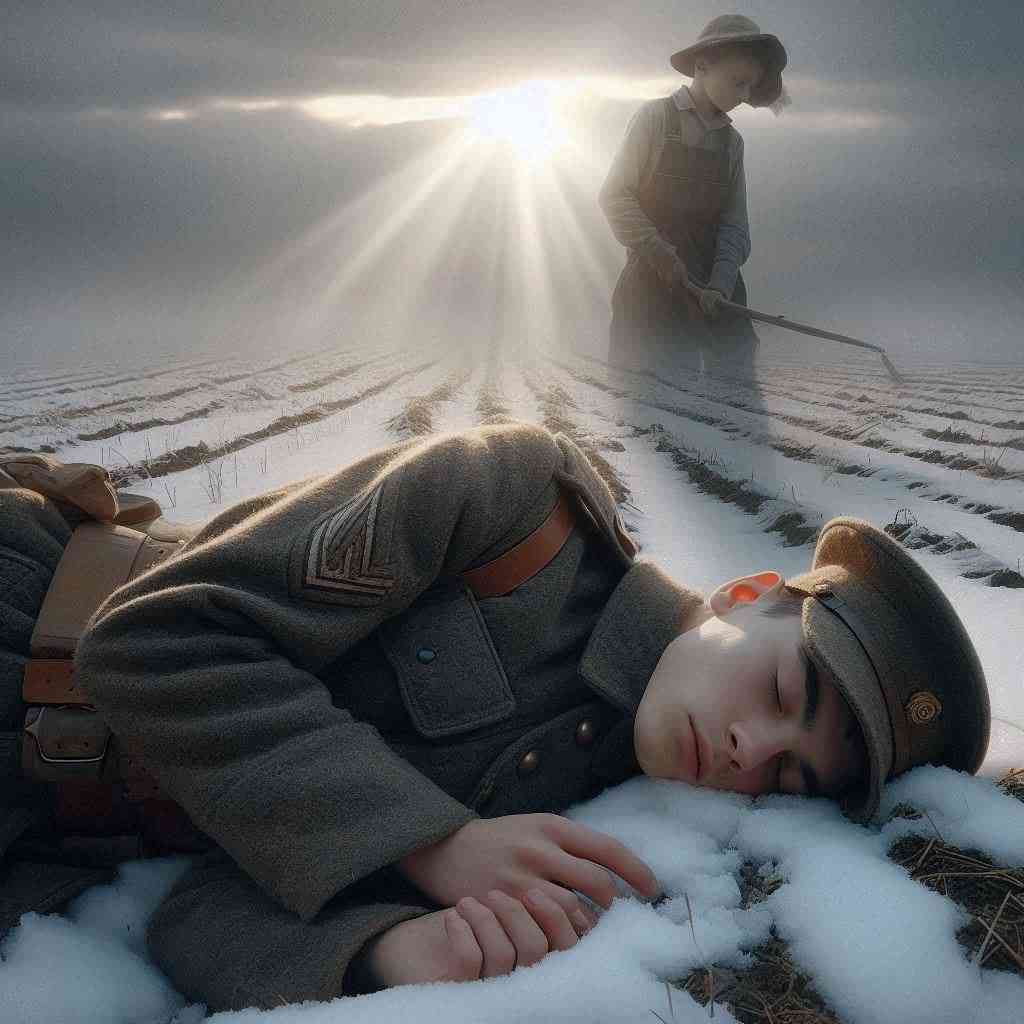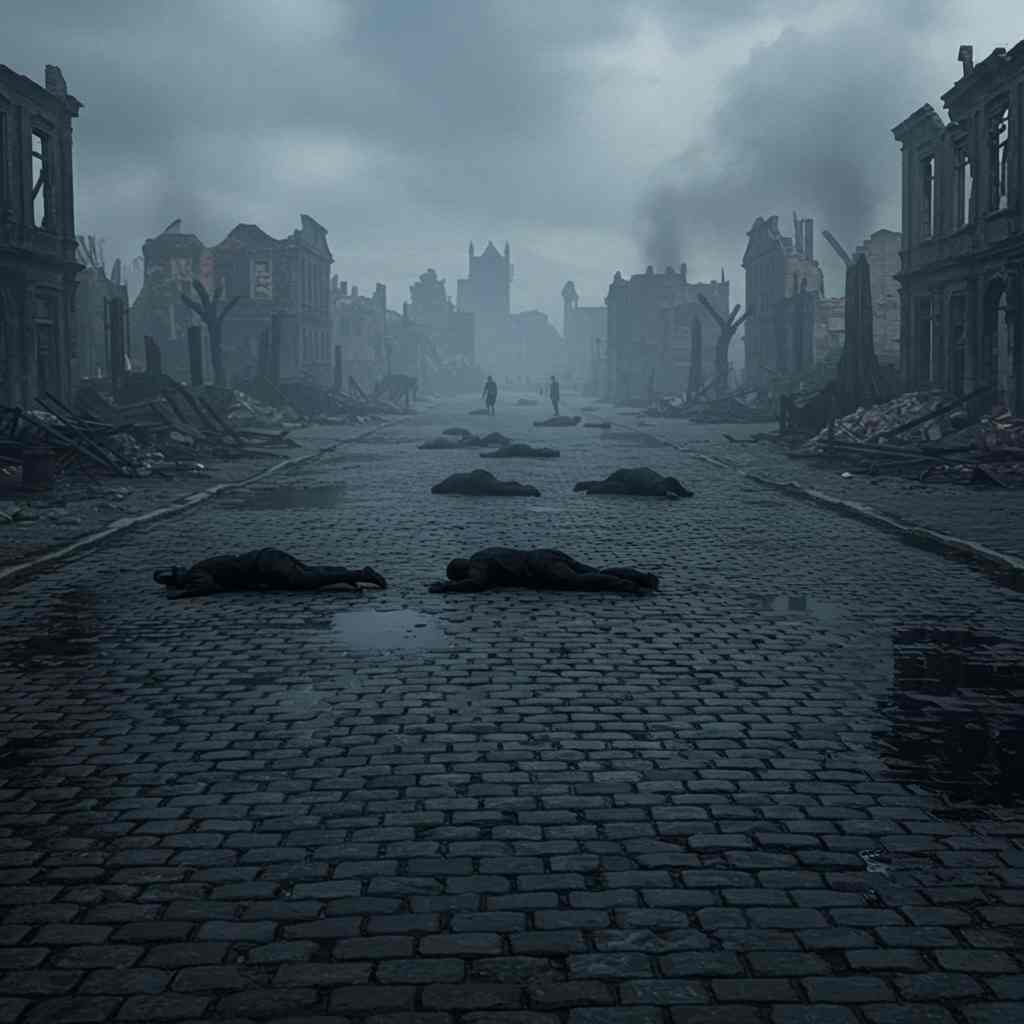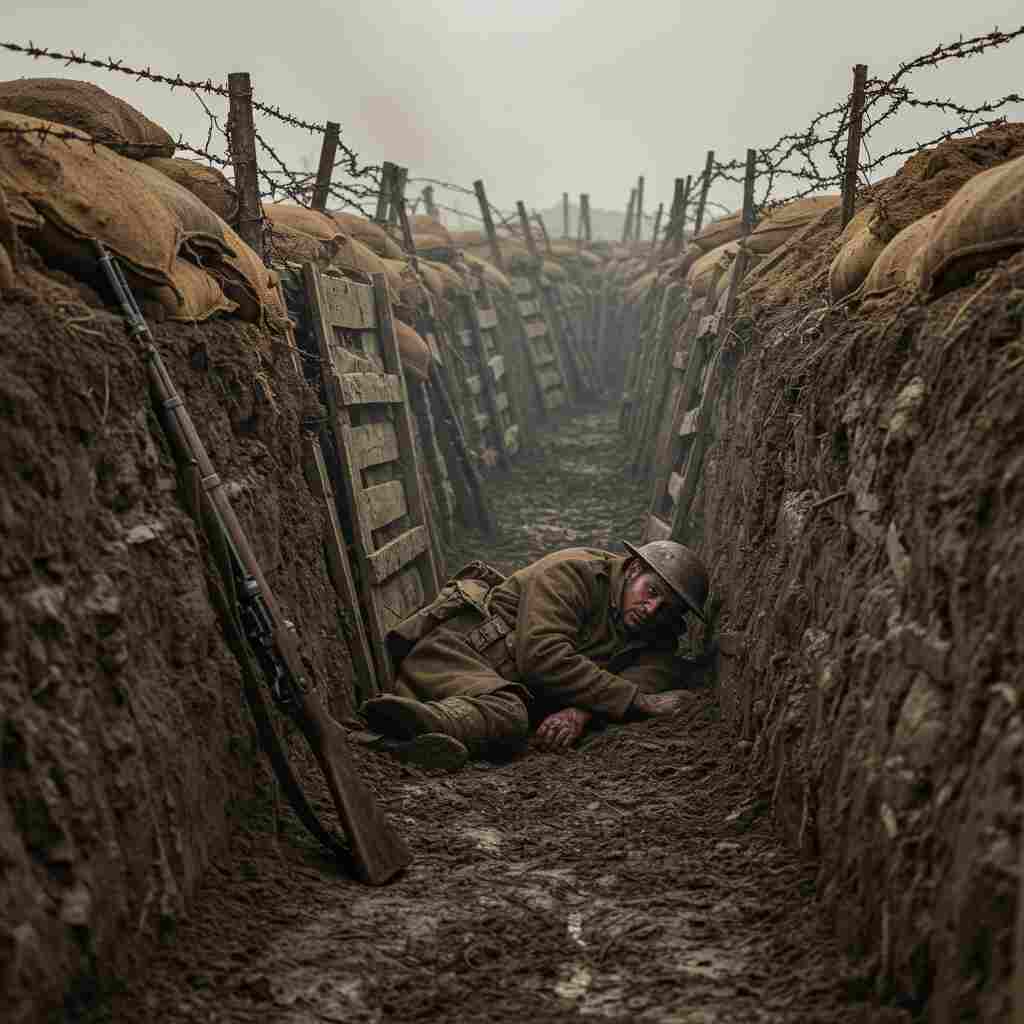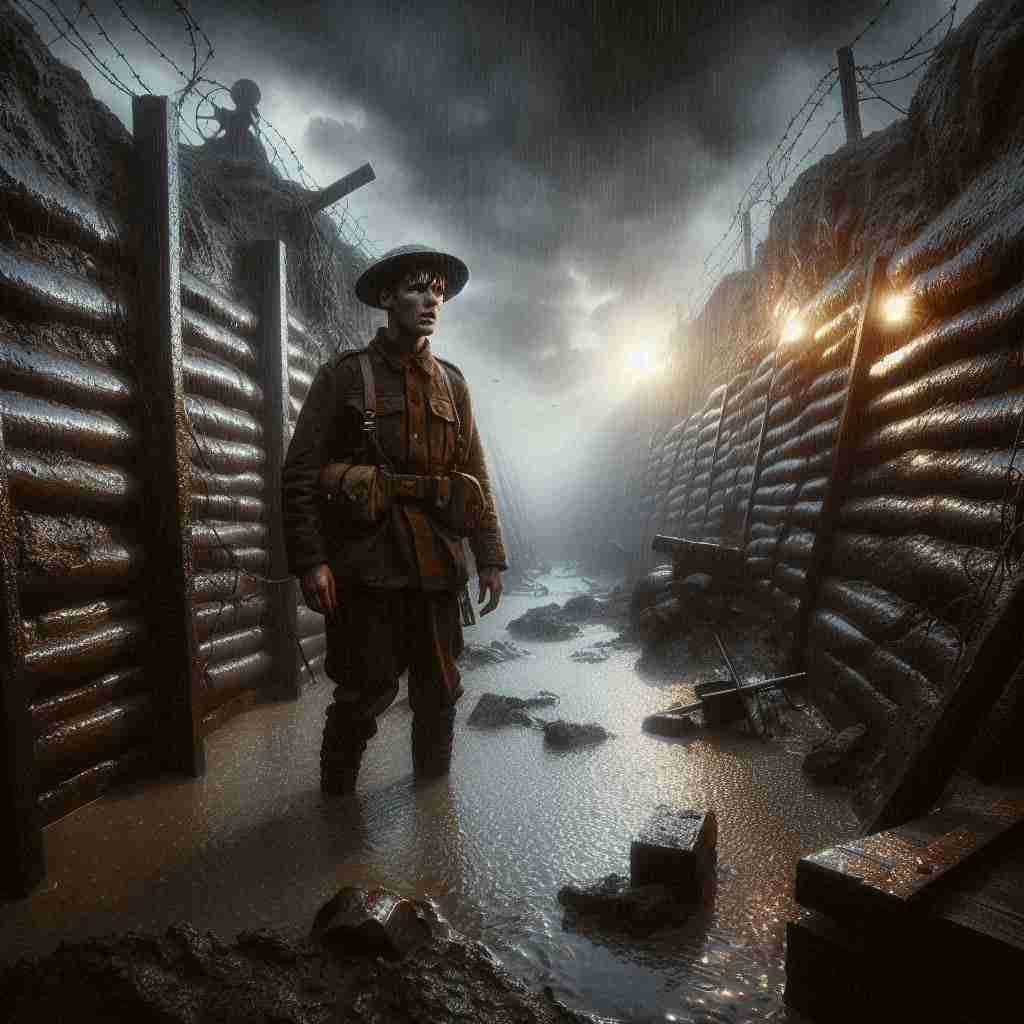9 Poems by Wilfred Owen
1893 - 1918
Wilfred Owen Biography
Wilfred Owen, one of the most renowned poets of the First World War, left an indelible mark on English literature despite his tragically short life. Born on March 18, 1893, in Oswestry, Shropshire, Owen grew up in a middle-class family with a strong religious background. His father, Thomas Owen, worked on the railways, while his mother, Susan Shaw, came from a family with farming roots. This upbringing would later influence Owen's poetry, particularly in his use of rural imagery and his complex relationship with faith.
From an early age, Owen displayed a keen interest in literature and poetry. He was particularly drawn to the Romantic poets, especially John Keats, whose influence can be seen in Owen's early works. Owen's education was marked by academic success, but financial constraints prevented him from attending university. Instead, he worked as a pupil-teacher at Wyle Cop School in Shrewsbury and later as a private tutor in Bordeaux, France.
Owen's time in France proved pivotal in his development as a poet. It was here that he encountered the works of French symbolist poets, particularly Paul Verlaine, whose style would later influence Owen's own. The outbreak of World War I in 1914 initially had little impact on Owen's life in France, but as the conflict escalated, he felt compelled to return to England and enlist.
In October 1915, Owen joined the Artists' Rifles Officers' Training Corps. His experiences during training and his subsequent deployment to the Western Front in January 1917 would profoundly shape his worldview and his poetry. Owen's initial romantic notions of war were quickly shattered by the brutal realities of trench warfare. He witnessed firsthand the horrors of gas attacks, shell shock, and the senseless loss of life, themes that would become central to his most powerful poems.
In April 1917, Owen was caught in a shell explosion and suffered severe concussion. He was evacuated to Craiglockhart War Hospital in Edinburgh, Scotland, where he was diagnosed with neurasthenia, or shell shock. It was during his convalescence at Craiglockhart that Owen met Siegfried Sassoon, a fellow poet and soldier who would become his mentor and friend. Sassoon's influence on Owen was profound, encouraging him to channel his war experiences into his poetry and helping him refine his poetic voice.
Under Sassoon's guidance, Owen produced some of his most famous works, including "Dulce et Decorum Est," "Anthem for Doomed Youth," and "Futility." These poems are characterized by their vivid imagery, powerful use of language, and unflinching portrayal of the war's brutality. Owen's poetry stands out for its technical mastery, particularly his innovative use of pararhyme and assonance, which create a haunting, dissonant effect that mirrors the chaos and horror of war.
Owen's poetry also reflects his complex relationship with religion. Raised in a devout Anglican household, Owen's faith was severely tested by his war experiences. Poems like "Anthem for Doomed Youth" and "At a Calvary near the Ancre" reveal his struggle to reconcile the Christian ideals of his upbringing with the senseless violence he witnessed on the battlefield.
Despite his growing reputation as a poet, Owen felt compelled to return to the front lines in August 1918. His decision was driven by a sense of duty to his fellow soldiers and a desire to bear witness to the war's reality. In his last months, Owen led his company with distinction, earning the Military Cross for his bravery during an attack on the Fonsomme Line.
Tragically, Owen was killed in action on November 4, 1918, just one week before the Armistice was signed. He was 25 years old. The news of his death reached his parents on November 11, 1918, the day the war ended, adding a cruel irony to his already poignant story.
Owen's poetry, much of it unpublished during his lifetime, gained recognition in the years following his death. Sassoon played a crucial role in ensuring Owen's work reached a wider audience, editing and publishing a collection of his poems in 1920. This collection, and subsequent editions, cemented Owen's reputation as one of the greatest war poets in the English language.
Owen's impact on literature extends far beyond his own time. His unflinching portrayal of war's horrors and his technical innovations in poetry have influenced generations of writers. His work has been studied, analyzed, and celebrated in academic circles, with scholars praising his ability to convey complex emotions and experiences through his verse.
The tension between Owen's role as a soldier and his identity as a poet has been a subject of much scholarly interest. His poetry reflects a deep empathy for his fellow soldiers and a sense of responsibility to tell their stories, while also grappling with his own trauma and disillusionment. This duality is perhaps best encapsulated in his famous preface, where he states, "My subject is War, and the pity of War. The Poetry is in the pity."
Owen's sexuality has also been a topic of discussion among biographers and literary critics. While definitive evidence is scarce, some scholars argue that Owen was homosexual, pointing to the intense male relationships depicted in his poetry and his close friendship with Sassoon. This aspect of Owen's life adds another layer of complexity to understanding his work and his experiences as a soldier in a time when homosexuality was taboo.
In the century since his death, Wilfred Owen's reputation has only grown. His poems are now staples of literature curricula, and his life and work continue to be the subject of numerous books, documentaries, and artistic interpretations. Owen's ability to convey the human cost of war with such power and empathy ensures that his poetry remains relevant and moving to readers today.
Wilfred Owen's life, though cut tragically short, left an enduring legacy. His poetry serves not only as a testament to the horrors of World War I but also as a powerful reminder of the human capacity for empathy, courage, and artistic expression in the face of unimaginable adversity. Owen's work continues to resonate with readers, challenging us to confront the realities of war and to consider the true meaning of sacrifice, patriotism, and humanity.
This text was generated by AI and is for reference only. Learn more
Username Information
No username is open
Unique usernames are free to use, but donations are always appreciated.
Quick Links
© 2024-2025 R.I.Chalmers (V2Melody).

All music on this site by R.I.Chalmers (V2Melody) is licensed under a Creative Commons Attribution-NonCommercial 4.0 International License.
Attribution Requirement:
When using this music, you must give appropriate credit by including the following statement (or equivalent) wherever the music is used or credited:
“Music by R.I.Chalmers (V2Melody) – https://v2melody.com”
Support My Work:
If you enjoy this music and would like to support future creations, donations are always welcome but never required.
Donate

